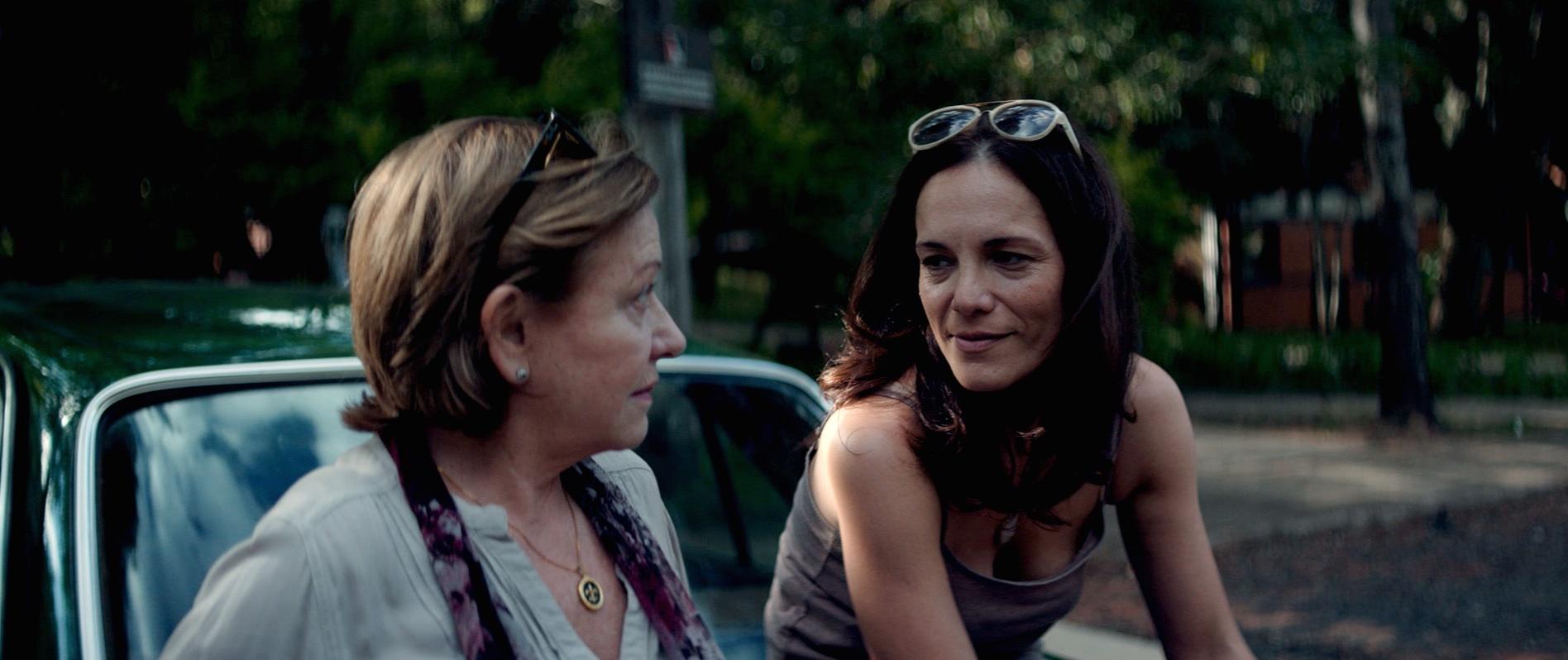Movies, like most popular entertainment, are obsessed with youth. Their stories generally follow young people on an adventure or falling in love. To stay employed, performers will go under the knife to cling on to smooth faces and svelte figures. Few movies follow women of Chela and Chiquita’s age. The protagonists of Marcelo Martinessi’s movie and Paraguay’s Oscar submission, Las herederas (The Heiresses), may have long outgrown their twenties, but they still have so much life to live. Unfortunately for the couple, these women are outliving their finances.
Chela (Ana Brun) and Chiquita (Margarita Irun) are remnants from once prominent families in Asunción, Paraguay. With their bank accounts dwindling, the couple sells off their families’ heirlooms to cover their debts. It isn’t enough, and Chiquita is sent to prison for fraud. Chela, left to fend for herself, begins driving around other rich older women in her social class for extra money. Her word-of-mouth car service leads her to pick up Angy (Ana Ivanova), a brash young woman related to one of Chela’s regular customers. Angy’s energy and presence shake out the cobwebs from Chela’s existence, causing her to question everything else in her life, including her 30-year-long relationship with Chiquita.
The movie shares a reserved quality with its central character. It is a quiet and observant film, much of the dialogue belongs to the people talking around or over Chela: Chiquita, their housekeeper Pati (Nilda Gonzalez), Chela’s customers and Angy. At first, it seems like Chela has very little to say, which Brun plays with soulful helplessness. But her crush on Angy awakens the kinds of insecurities and anxieties we feel when facing the possibility of a new relationship. By the film’s end, Chela essentially transforms into a new character.
Although Chela and Chiquita come from a privileged background, that doesn’t translate into a proper retirement plan. Their financial struggles are perhaps more relatable than many of us would like to admit. Maybe we had a steady job for a time or found a good deal on rent or a mortgage. But these are tenuous comforts, susceptible to forces outside our control. Now that the false sense of security was shattered for the couple, perhaps their relationship is not as sturdy enough to weather the storm.

Their relationship, like everything else in their lives, seems to have also dried up slowly over the years. It’s more a thing of habit, something they assumed would always be there. That’s not to say Chiquita isn’t devoted to Chela. Many of the film’s opening scenes are of her tending to her withdrawn partner. This makes The Heiresses so much more complex because other than their financial woes, there’s no real villain in the movie, just two flawed people.
To sympathize with his characters, Martinessi places the viewers in Chela’s mindset. Much of the movie is set in the couple’s home, a clean but somewhat cluttered place that looks like it never gets enough light. The curtains always look drawn, the shutters feel closed even when they’re opened in the morning and the bulbs look aged and weak. Chela appears underlit in her home as if she’s physically disappearing into herself. Even the film’s muted colors reflect her faded existence. When Chela dutifully visits Chiquita in jail, Brun looks just as uncomfortable there as she does in the parlors where her social circles gather. Its physical presence looks to overwhelm her, her daily silence is broken by people talking over her. Brun gives a quiet performance that would be easily missed in these bustling scenes were it not for Martinessi’s focused lens.
This unshowy camerawork and natural performances make The Heiresses feel realistic. It’s a slice-of-life drama that looks lived-in and familiar. So much of the story is told through Chela’s somber looks that it’s up to the viewer to figure out her thoughts and feelings she’s incapable of speaking. Which is easy to do with the help of the Martinessi and Brun. Chela comes alive through her wordless expressions, her stolen glances at Angy, her frustrated stares at the road when driving, the tears in her eyes when she senses that her feelings have been discovered. It is the absence of action and words that gives The Heiresses so much power.
Las Herederas (The Heiresses) opens January 16 at Film Forum in New York City with other U.S. cities to follow.







